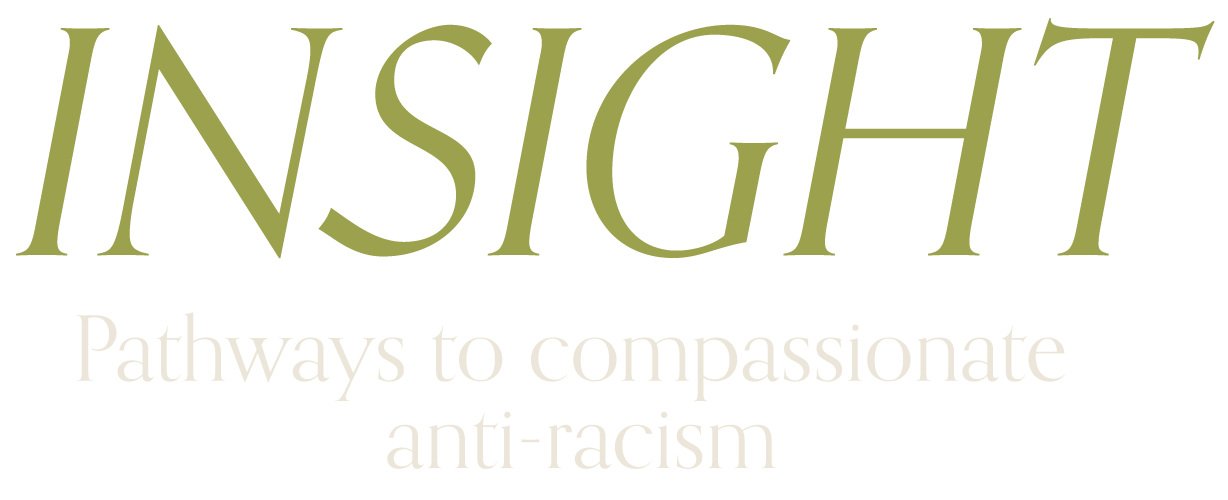INSIGHT developed the concept of Contemplative Anti-racism as a way to engage racism and other “isms” from a position self-examination of the places we carry the harm of ignorance and aggression. Cultivating love, self-confidence and power equips us to bring those qualities to our efforts to build a sane, just and peaceful world. Such confidence also prepares us to go beyond the things we internalize within hateful and oppressive hierarchies—blame, anger, guilt and shame— so that we can enjoy the benefits of self-liberation and collective action.
Developing ways to really know and respect our own power and creativity is part of engine that drives social justice. It allows us to not recreate the same power abuses and imbalances we see in our social institutions. How do we manifest justice in every thing we do, in all of our relationships, in our care for the planet? Using contemplative practices to answer these questions is not new. The Insight approach attempts to make a contribution to multiple wisdom lineages of contemporary conversations.
We need compassionate and creative alternatives to racism.
One to one personal training, workshops and the community lab all work to enriching our capacity to practice contemplative anti-racism. The work offers a sustained focus on undoing the myths, privileges, silence and damage that comes with racism and other “isms” causing harm.
Images from a Diaspora Identity Exercise created by participants from Contemplative Action and Social Change workshop offered in Halifax, 2022
What people are saying about INSIGHT
Dr. Damita Brown is a community-based educator and consultant specializing in the application of contemplative practices to problems related to racism. Dr. Brown studied the relationship between social justice and racial identity at the University of California, Santa Cruz, earning a doctorate in History of Consciousness. She then taught at the University of California, Santa Barbara and Mills College.
A seasoned activist, she worked in different social justice movements for many years before turning her energy to a balance between contemplative practice and alternative community building. Her experience as a student of the Dharma and meditation instructor, enrich her dedication to providing compassionate solutions for people of all backgrounds. She is also trained in restorative justice facilitation and non-violent communication.
Through workshops, personal training and consulting she helps people address institutional racism and other forms of oppression. Dr. Brown’s goal is to help people develop guilt-free, sustainable, and effective action plans for addressing racism at any level.
Advisory Council
The advisory council makes recommendations, gives feedback that guides and supports successful outcomes for projects.
-
Laura Gray is passionate about Restorative Circles, diversity, equity, and inclusion.
She is a product of Chicago Public Schools and has 20 years of experience in education where she has served as teacher, assistant principal, building principal and educational director. Laura is an experienced Gray Space Thinking executive coach, facilitator, motivational speaker, published author, Restorative Circle Keeper, trainer, curriculum designer, educator and consultant.
She has a BA in English Education from Loyola University Chicago and a MA in Educational Leadership from Concordia University Chicago. She has over 300 contact hours leading and training others in restorative circles. Laura currently serves as the Executive Director of Diversity and Cultural Responsiveness for the Iowa City Community School District. She is also the founder of Restorative Community Partners, LLC, Captivate Diversity Conferences, and Cofounder of R&R Equity Concierges.
-
Nandi Seboulisa is an inspired world traveler, activist, thinker, ceramics worker, mother and longshoreman. Over the years she has been an activist in social justice movements dealing with racism, transphobia, police brutality, inequality and more. As a trauma survivor, she also leads workshops and support groups that help people find alternative coping skills in dealing with trauma and other problems. Currently she is active in her union to help overcome racism in the shipyards of the Northwest.
-
Michael Speraw is a retired entrepreneur from Long Beach, CA. I Grew up in a white suburb where until 1965 homeowners had deeds with racially restrictive covenants requiring them to sell to “Caucasian only.” In my high school of 4,000 kids, there was one or two black kids. I am interested in exploring and facing the deep and unconscious racial bias I have internalized as a result of my upbringing in a white supremacist world. Damita’s work is a great support for this exploration.




